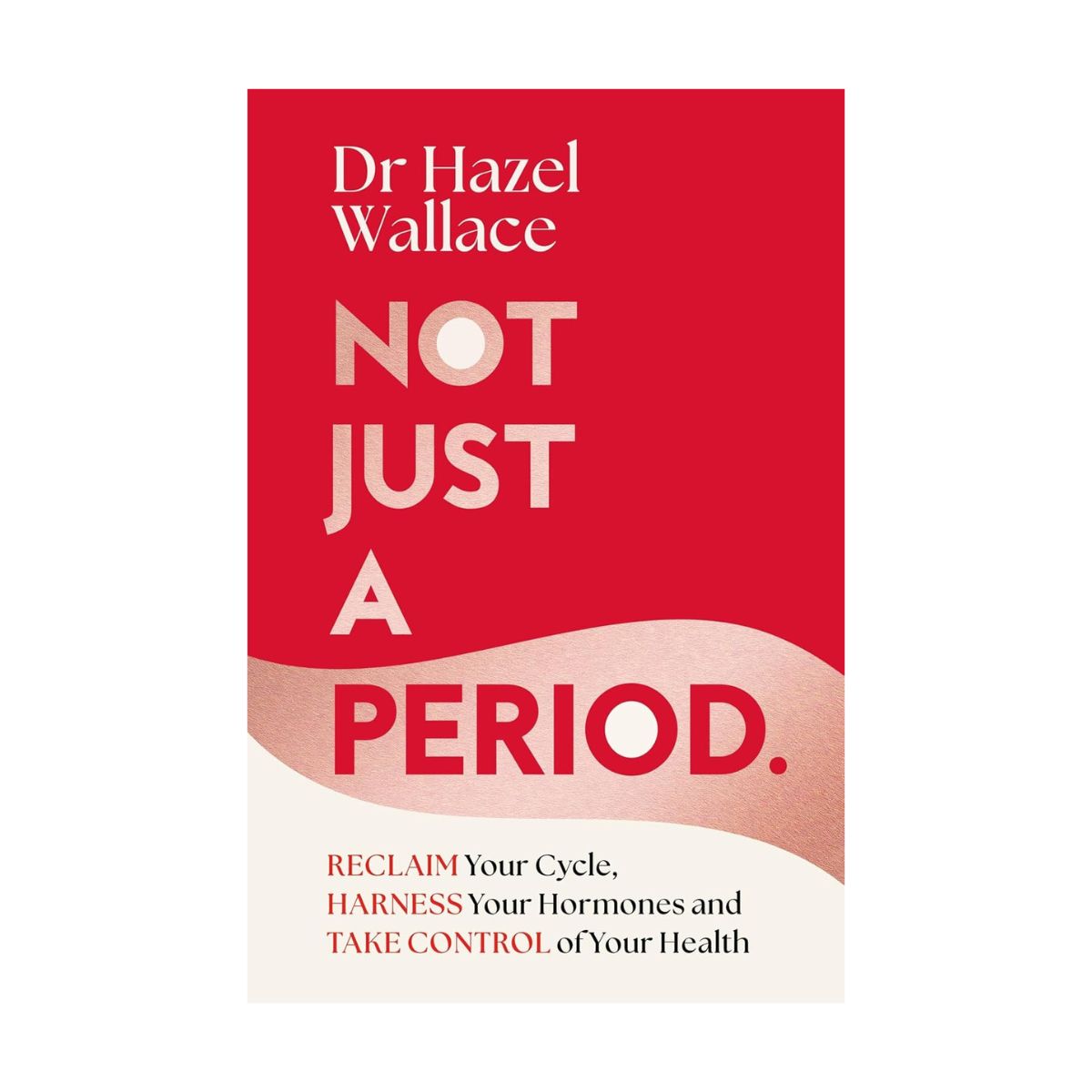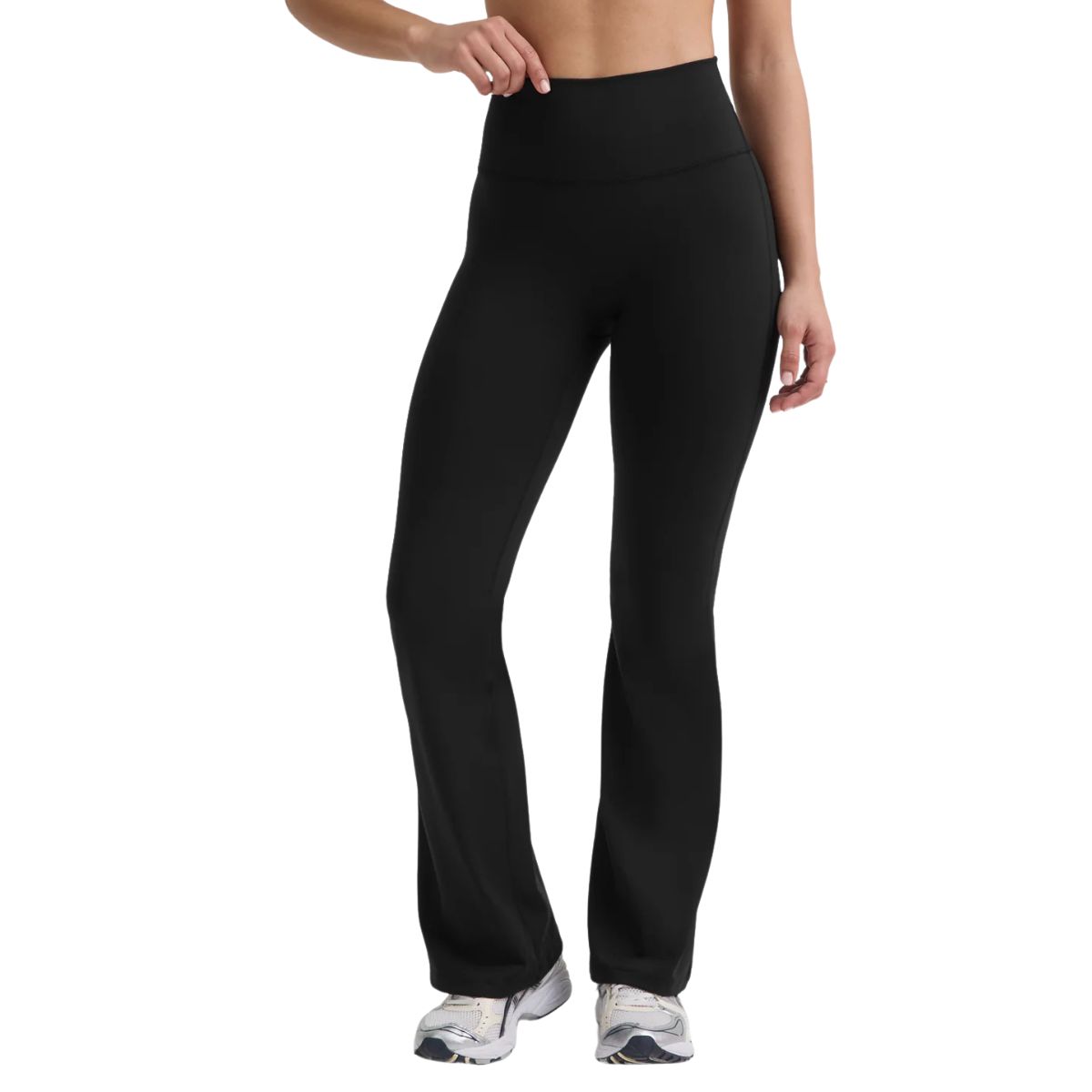
Celebrity news, beauty, fashion advice, and fascinating features, delivered straight to your inbox!
You are now subscribed
Your newsletter sign-up was successful
Hands up if you've ever felt like a doctor rushed one of your medical appointments? Or like a medical professional didn't listen to you or your health concerns? Or like you weren't getting the professional support that you needed?
Hands up if, in turn, you've felt like you have no choice but to take your menstrual health into your own hands or turned to unqualified menstrual health "coaches" and self-proclaimed hormonal experts on platforms like TikTok?
If that's you, you're far from alone. There's a stark lack of research and support when it comes to female health conditions, both in the UK and globally, with the average diagnosis time for the female health condition endometriosis currently sitting at an average of eight years.
That's where experts like Dr Hazel Wallace come in. A former NHS medical doctor and women’s health nutritionist, she's also run her own brand, The Food Medic, since 2012. One post, recipe reel and myth debunking infographic at a time, she's cemented evidence-based and research-backed nutrition and health information online, educating women about their menstrual cycles, the importance of balanced nutrition, and the common female health conditions so many of us live with.
Her fourth book, Not Just A Period, reflects her dedication to women’s health. "As a woman and a health provider to many other women, I have realised that our health needs are underserved and overlooked," she shares. "I want to change the accepted narrative that, in medical circles, women are simply 'small men' and argue that they should instead be seen and understood in their own unique way."
She shares that the irony isn't lost on her that, as a content creator, she spends a lot of her time undoing the harm caused by social media. "Often, when women first come to me in my nutrition clinic, they will be on a whole host of 'women’s health' supplements that they’ve been encouraged to buy through targeted advertisements or following restrictive diets because they came across a video claiming carbs cause polycystic ovary syndrome," she shares.
But the good news? With the right nutrition support, alongside usual medical care, we can improve the symptoms, long-term health and quality of life of the women living with these conditions. "I’ve achieved this first-hand with my clients and with my own menstrual cycle, but I want that transformation to be possible for all women.
Celebrity news, beauty, fashion advice, and fascinating features, delivered straight to your inbox!
To coincide with PCOS Awareness Month, below, she shares her top tips for advocating for yourself, if you think you may have an undiagnosed female health condition - aka, the tips she wishes she'd known herself at the start of a two-year-long process to being diagnosed with PCOS herself. As she says in her book, "With the right education, awareness and support, we can help women reclaim their cycle, harness their hormones and take control of their health. For anyone who has ever felt confused about, or been made to feel ashamed of, their menstrual cycle – this is a step towards reclaiming that narrative and embracing your power."
For more on PCOS specifically, don't miss our expert-led guides to the most helpful and well-researched PCOS treatments, plus nutritionist-approved PCOS supplements, here.
7 things I've learnt about advocating for your health, as a female health doctor
While many GPs and doctors are hugely supportive, we learned from the Women’s Health Strategy for England how women have not been listened to when it comes to their pain - being told that heavy and painful periods are "normal" or that they would "grow out of them."
Many shared stories of how they spoke to doctors on multiple occasions over many months or years before receiving a diagnosis for conditions such as endometriosis.
It’s so important that we are able to discuss any distressing symptoms with our doctors - and that we feel listened to. In our survey, we found that women who are comfortable accessing support from healthcare providers experience less-severe menstrual symptoms and feel more supported compared to those who do not feel comfortable engaging with healthcare providers about their menstrual health.
If you are experiencing period problems, the first port of call in the UK will be your GP. At the time of writing, I’m aware that getting time with a GP is easier said than done, but it is worth persisting, as they really can help. From there, if required, you can be referred to an NHS gynaecologist. You can also see gynaecologists through private healthcare. If your problem is urgent, such as very heavy bleeding that is causing you to be unwell, dizzy or sick, then you should go to A&E.
A post shared by Dr Hazel Wallace BSc MSc MBBCh (@drhazelwallace)
A photo posted by on
While it’s unfortunate that women often need to advocate for themselves in the doctor’s office, and it’s absolutely not your responsibility to fix a flawed system, you can take proactive steps to improve your experience and access to healthcare.
Here are some self-advocacy tips to help you make the most of your medical appointments.
1. Keep a symptoms diary
First things first? Keep a symptom diary for at least two to three menstrual cycles and bring it with you to the appointment.
2. Order in priority
Next up - prioritise. If you have a number of concerns, talk about the most important thing first, as GPs often have a limited time to spend on each patient.
3. Don't downplay the severity of your symptoms
Avoid downplaying the severity of your symptoms, and be sure to tell your healthcare provider how these symptoms are affecting your life.
A post shared by Dr Hazel Wallace BSc MSc MBBCh (@drhazelwallace)
A photo posted by on
4. Share your concerns
Next up - if you're concerned that you have a specific condition, such as endometriosis or PCOS, share that concern so that your doctor can address it.
5. Request a GP you feel comfortable with
If it’s possible, request a GP you know and feel comfortable with. If you feel like your health concerns are not being taken seriously, you can ask to see another doctor.
6. Bring someone with you
If you feel more comfortable, you can bring someone with you to your consultation. Sometimes having someone with us who we trust can help us feel more con dent speaking up.
7. Come prepared
Come prepared with questions you would like to ask – for example, if you will need any tests or investigations, or simply what happens next. However, depending on your symptoms, your doctor may not need to do any specific tests, and if this is the case, you can ask them to explain why.
Shop MC UK approved health tools now:

Ally is Marie Claire UK's Senior Health and Sustainability Editor, a well-regarded wellness expert, ten-time marathoner, and Boston Qualifying runner.
Utilising her impressive skillset and exceptional quality of writing, she pens investigative, review and first-person pieces that consistently demonstrate flair and originality.
As well as writing, Ally manages a team of freelancers, oversees all commissioning and strategy for her pillars, and spearheads the brand's annual Women in Sport covers, interviewing and shooting the likes of Mary Earps, Millie Bright, and Ilona Maher. Shortlisted for three BSMEs and winning one in 2022, Ally lives and breathes her verticals: her eye for a story and connections within the wellness sphere are unrivalled. Follow Ally on Instagram for more.



